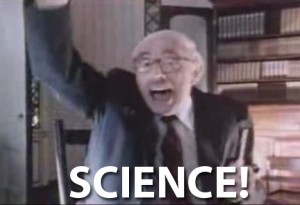Some 10, maybe 15 years ago, Timothy Caulfield and I served on the same federal advisory panel in Canada, and both argued for evidence-based solutions for biotechnology and food production.
 And somewhere along the way, we both figured out that shamelessly using celebrities would help spread our message.
And somewhere along the way, we both figured out that shamelessly using celebrities would help spread our message.
Caulfield, a professor at the University of Alberta (that’s in Canada) with his book, Is Gwyneth Paltrow Wrong About Everything? When Celebrity Culture and Science Clash, seems to be part of a growing movement that says: science is cool. Celebrities aren’t scientists. People who get PhDs and do the work are.
But what about those who shamelessly trade on their scientific credentials?
The American Medical Association is finally taking a stand on quacks like Dr. Oz to “defend the integrity of the profession.”
“This is a turning point where the AMA is willing to go out in public and actively defend the profession,” Benjamin Mazer, a medical student at the University of Rochester who was involved in crafting the resolution, said. “This is one of the most proactive steps that the AMA has taken [on mass media issues].”
And as the N.Y. Times reported, the crimes and misdemeanors of science used to be handled mostly in-house, with a private word at the faculty club, barbed questions at a conference, maybe a quiet dismissal. On the rare occasion when a journal publicly retracted a study, it typically did so in a cryptic footnote. Few were the wiser; many retracted studies have been cited as legitimate evidence by others years after the fact.
But that gentlemen’s world has all but evaporated, as a remarkable series of events last month demonstrated. In mid-May, after two graduate students raised questions about a widely reported study on how political canvassing affects opinions of same-sex marriage, editors at the journal Science, where the study was published, began to investigate. What followed was a frenzy of second-guessing, accusations and commentary from all corners of the Internet: “Retraction” as serial drama, rather than footnote. Science officially pulled the paper, by Michael LaCour of the University of California, Los Angeles, and Donald Green of Columbia, on May 28, because of concerns about Mr. LaCour’s data.
“Until recently it was unusual for us to report on studies that were not yet retracted,” said Dr. Ivan Oransky, an editor of the blog Retraction Watch, the first news media outlet to report that the study had been challenged. But new technology and a push for transparency from younger scientists have changed that, he said. “We have more tips than we can handle.”
 The case has played out against an increase in retractions that has alarmed many journal editors and authors. Scientists in fields as diverse as neurobiology, anesthesia and economics are debating how to reduce misconduct, without creating a police-state mentality that undermines creativity and collaboration.
The case has played out against an increase in retractions that has alarmed many journal editors and authors. Scientists in fields as diverse as neurobiology, anesthesia and economics are debating how to reduce misconduct, without creating a police-state mentality that undermines creativity and collaboration.
“It’s an extraordinary time,” said Brian Nosek, a professor of psychology at the University of Virginia, and a founder of the Center for Open Science, which provides a free service through which labs can share data and protocols. “We are now seeing a number of efforts to push for data repositories to facilitate direct replications of findings.”
